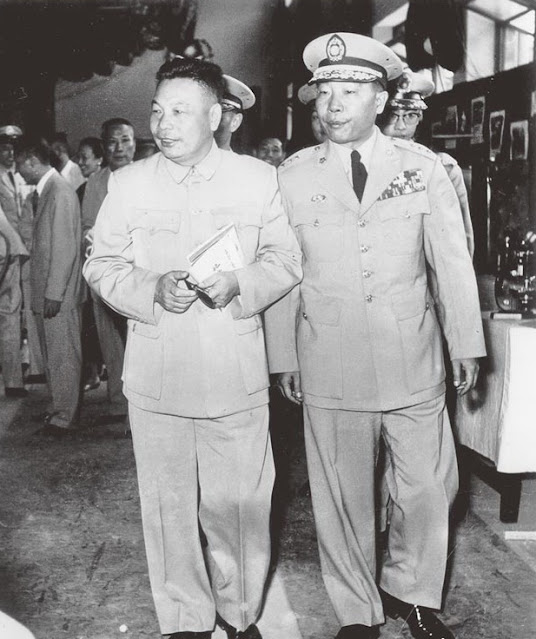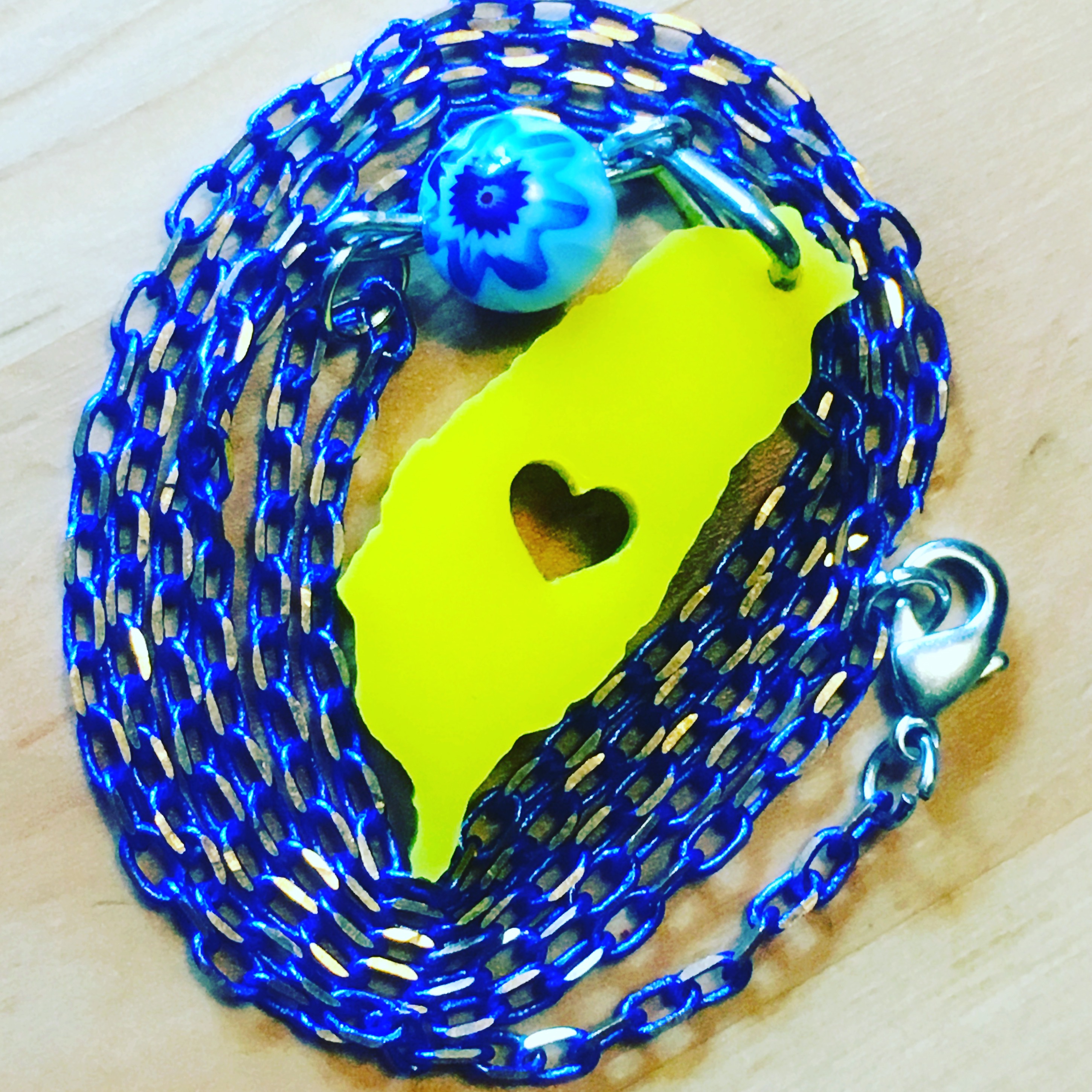Let me be upfront: this is an off-the-cuff post that I honestly need to research more. When I have the time, I'll try to update it accordingly. Please understand, I have a huge writing assignment coming due and have just been diagnosed with diabetes resulting from post-COVID complications, so I'm not as focused as I should be.
With that said, I want to talk about Taipei Mayor Wayne Wan-an Chiang, his grandfather Chiang Ching-kuo, and the 228 Massacre. While speaking at a 228 memorial event today, Chiang was heckled by protesters waving white banners and demanding he "kneel and apologize" for the crimes of his ancestors. Other protesters -- legislators Lin Liang-chun, Wu Pei-yi and Miao Po-ya -- held signs in the audience saying "Stop Idolizing Dictators", "Return Records to the State" and "Remove Authoritarian Symbols" (my translation).
Miao, on point as usual, said that authoritarian symbols (such as Chiang Kai-shek Memorial Hall) have no place in a democracy, that Mayor Chiang's speech was full of well-worded rhetoric but "beautiful words don't matter as much as what the words actually do", that many families were not participating in commemorative activities due to deep sadness, and that truth, justice and reconciliation in that order are vital for transitional justice.
One might say that it's unfair to demand that Chiang, grandson of one dictator and great-grandson of another, apologize for the crimes of his ancestors. He is not the same person as his ancestors, and he was on stage acknowledging the fact of the 228 Massacre.
No, not the 228 "Incident". Massacre.
There is an alternate universe somewhere in which I agree with this: it's the one where Chiang is still surnamed Chang despite legal agreement that he is the grandson of Chiang Ching-kuo, but chose not to change his name because he understood the implications. It's the one where he ran for mayor without tying his legacy to the memory of Chiang Ching-kuo who was, again, a dictator. It's the one where he acknowledged the crimes against humanity committed by both of his legally-recognized ancestors, and promised that truth, justice and reconciliation without idolizing one of them or attempting to draw on his name.
That's not the universe we live in. We live in the one where he puts Mass Murder Grandpa on his campaign flags.
Still, you might say, the Chiang whose reputation he called upon to bolster his own campaign wasn't the perpetrator of 228. Chiang Ching-kuo wasn't the same as his father.
That, I must say, is a distinction without a difference. First of all, although it's true that even Mayor Chiang understands that Chiang Kai-shek's image should not be on his campaign flags, he absolutely stands for the continued existence of his great-grandfather's memorial hall with its statue in situ -- a memorial hall built to make him seem like a great man, not the butcher he was. That is, a memorial hall that continues to enshrine the worst of the KMT dictatorship and obscure, not confront, the worst of its horrors.
That should be enough, but wait -- there's more! Chiang Ching-kuo, the ancestor that Chiang Wan-an idolized so much that he put the guy on his campaign flags, might not have been the chief perpetrator of 228, but it's wrong to say he wasn't involved at all.
After the slaughter had begun, he arrived in Taiwan on March 17, 1947:
By the 17th, the Army were declaring victory. Defense Minister Bai Chongxi (白崇禧) arrived in Taiwan with the generalissimo's son, Chiang Ching-kuo (蔣經國), and wired a message to Chiang Kai-shek that "order is mostly restored, and we are in pursuit of the last remaining rebels that joined forces with armed thugs.”
It's more likely than not that Chiang agreed with this depiction of events -- one in which the victims ("thugs" and "rebels") were at fault and the government was "restoring order".
NewTalk describes his work around March 17th as "telegraphing the arrest list", after which further crackdowns were carried out. Is NewTalk the definitive source on this? Not necessarily, but Chiang was with Bai and others in Taiwan to deal with 228. The arrests and executions -- both organized against dissidents and indiscriminate -- continued. Chiang's hands are not clean.
After their arrival, Bai and Chiang toured the island, visiting Keelung, Chiayi and Kaohsiung among other places. I mention these cities specifically because they're known for being places where the KMT committed especially egregious massacres. Chiang and Bai visited Chiayi the midst of mass executions taking place in that city. Did he personally order the executions? Probably not, as some occurred before his arrival. Many, however, occurred after, including the execution of 70 individuals in Chiayi.
Did he know about them and approve? Surely.
Some of those executed were tortured as well. Thinking Taiwan describes the treatment of Dr. Pan Mu-chi, who had his nails pierced with iron and was doused in gasoline.
If the son of the dictator visits a city with the Defense Minister in the midst of mass executions, broadcasts a message following the wishes of his father, allegedly telegraphs an arrest list, and then that many people are executed if not heinously tortured, how can one possibly say that that dictator's son holds no culpability?
Let's move to Kaohsiung. Here's Chiang shoulder-to-shoulder with Peng Meng-chi, known as the "Butcher of Kaohsiung". I took it from Taiwan Gazette, but it's also available on Imgur:
Here's what Peng did:
The narration describes Taiwan governor Chen Yi as the main culprit, along with Peng Meng-chi (彭孟緝), the garrison commander, who gave the order to the military to attack the train station, the Kaohsiung Middle School, the Kaohsiung Municipal Government and to shoot all the city councilors, who were in the process of negotiating a settlement for the 228 Massacre.
Here's more:
In Kaohsiung, where protests had also broken out, fortress commander Peng Meng-chi (彭孟緝) was losing patience. On the 6th, Peng gave orders to move on protesters that had gathered at the train station, city hall and Kaohsiung Senior High school. Three of Kaohsiung’s most prominent community members were arrested and later executed, including Tu Kuang-ming (涂光明), Fan Tsang-jung (范滄榕) and Tseng Fengmin (曾豐明).
Peng's Kaohsiung massacre happened on March 6th, Chiang Ching-kuo arrived on the 17th, after it had taken place. They seem extremely friendly. What are the chances that Chiang either didn't know or didn't approve of Peng's actions?
His bestie, The Butcher of Kaohsiung, would become the head of the Taiwan Garrison Command among other high-ranking or honorable political placements.
Well, when you take a man like Chiang Ching-kuo and make him one of the main thrusts of your campaign for political office, you best be willing to acknowledge and atone for his sins, as well. Some still hold residual goodwill towards Chiang Ching-kuo for his infrastructure projects, perceived role in the Taiwan Miracle and the notion that he helped usher in democratization (he did not). Chiang Wan-an very obviously wanted to capitalize on this, to stir nostalgia for the "good old days" in oldsters, at least the ones who never had a family member dragged off and shot.
Otherwise, as a friend put it, Wan-an wants all the advantages of being a Chiang, with none of the downsides. That's not how these things should work. It is ethically wrong to grasp for one while refusing to acknowledge the other. If he wants to connect his political career to his grandfather's legacy, that must include the entirety of said legacy; there's no ethical way to pick and choose.
If Chiang doesn't want to be held accountable for this, he should take his Mass Murder Grandpa's face off all his damn flags. If you want the face of the man to be one of the faces of your campaign, you should indeed "kneel and apologize" for all of the horrible things he did. If that sounds unappealing, well, there's a reason why.
Chiang Wan-an is not only not "clearing authoritarian symbols" as Miao Po-ya demanded and any reasonable person would want. He is quite literally using them to climb the political ladder. That is disgusting and Chiang should be ashamed of himself. Kneel and apologize.
As that's not likely, just imagine there's a sign on his forehead that says "heckle me harder", because that's what Chiang Wan-an deserves.




